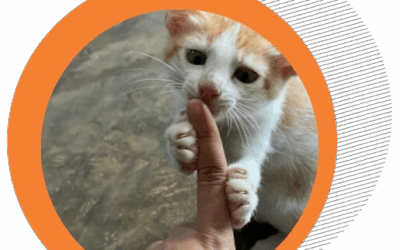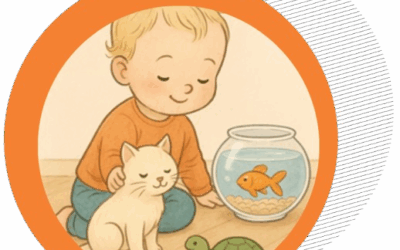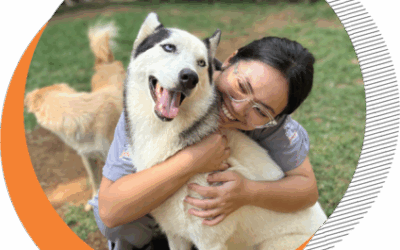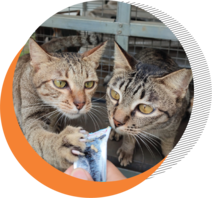
When Children Abuse Animals: Danger Signals to Watch Out For
By: Drh. Mikeu Paujiah, Dipl. Montessori and Maryam Smeer, S. Kom
Translator : AWI Team
Being aware of child abuse to animals is very important. This is because not only is it bad for the animal, but it can also be an indication of more serious problems in the child’s emotional and mental development.
John M. Macdonald in his journal The Threat To Kill observed that criminals usually start out by committing animal cruelty in their childhood and adolescence.
Not all children who are violent towards animals grow up to be close to criminals. However, if the child shows an unusual or persistent interest in hurting animals, then he or she needs professional counselling.
Read Also : Having a Pet is Good for a Child’s Growth
Image 1. JAAN Domestic Shelter

According to Macdonald, children who frequently witness violence, such as domestic violence, abuse, harassment, and other criminal behaviour can cause emotional and mental distress.
Here are some signs of abuse to look out for. Parents should immediately consult an expert if they find these signs being carried out by their child.
– Aggressive Behaviour
Pay attention to whether the child often shows aggressive behaviour towards animals. For example, hitting, kicking or pinching animals. If parents find this then the child should be supervised further.
– Lack of Empathy
Empathy is the ability to understand the feelings or emotions of another being. Empathy is used to understand what another person is feeling in a particular situation. Children’s awareness of animal sensitivity is associated with compassion and humane behaviour towards animals. Take note! If after doing something that hurts an animal, the child does not show any guilt or remorse after hurting the animal, it could indicate the child’s lack of empathy. This is a danger sign for his/her social development.
– Intensity of abuse
Children who repeatedly abuse animals may have emotional or mental disorders that require special attention. Especially if they think that torturing animals gives them special pleasure. Callousness and lack of emotional reactivity are thought to trigger the development of psychopathy.
Psychopathy is a neurological disorder characterised by a lack of remorse and empathy, impulsivity, reduced emotional response to their environment. This increases the potential for a higher propensity to develop criminal behaviour. Therefore, consult an expert immediately if you find your child committing animal abuse with high intensity.
Here are some signs of abuse to look out for. Parents should immediately consult an expert if they find these signs being carried out by their child.
– Aggressive Behaviour
Pay attention to whether the child often shows aggressive behaviour towards animals. For example, hitting, kicking or pinching animals. If parents find this then the child should be supervised further.
– Lack of Empathy
Empathy is the ability to understand the feelings or emotions of another being. Empathy is used to understand what another person is feeling in a particular situation. Children’s awareness of animal sensitivity is associated with compassion and humane behaviour towards animals. Take note! If after doing something that hurts an animal, the child does not show any guilt or remorse after hurting the animal, it could indicate the child’s lack of empathy. This is a danger sign for his/her social development.
– Intensity of abuse
Children who repeatedly abuse animals may have emotional or mental disorders that require special attention. Especially if they think that torturing animals gives them special pleasure. Callousness and lack of emotional reactivity are thought to trigger the development of psychopathy.
Psychopathy is a neurological disorder characterised by a lack of remorse and empathy, impulsivity, reduced emotional response to their environment. This increases the potential for a higher propensity to develop criminal behaviour. Therefore, consult an expert immediately if you find your child committing animal abuse with high intensity.
Closure
Recognising and addressing child abuse of animals is an important step in shaping a more empathetic and caring generation. Although in some cases, children’s actions towards animals may be considered as part of the exploration process. It is therefore important that we understand reasonable boundaries
Ignoring the early signs of animal abuse is very dangerous, not only does it risk the welfare of the animal, but it can also adversely affect the child’s own mental and emotional development. Therefore, it is important to bring attention and understanding to the child. If necessary, seek professional help so that the child can grow into an emotionally and socially healthy individual. By doing so, we are not only protecting animals from abuse, but also safeguarding the future of our children.
Read Also : Do’s and Dont’s
Image 2. JAAN Domestic Shelter

Source :
Children abusing animals. (n.d.). National Link Coalition. Retrieved August 24, 2024, from https://nationallinkcoalition.org/faqs/children-abusing-animals
Mota-Rojas, D., Monsalve, S., Lezama-García, K., Mora-Medina, P., Domínguez-Oliva, A., Ramírez-Necoechea, R., & Garcia, R. de C. M. (2022). Animal abuse as an indicator of domestic violence: One health, one welfare approach. Animals: An Open Access Journal from MDPI, 12(8), 977. https://doi.org/10.3390/ani12080977
Macdonald, J. The threat to kill. Am. J. Psychiatry 1963, 120, 125–130.
Related Post





